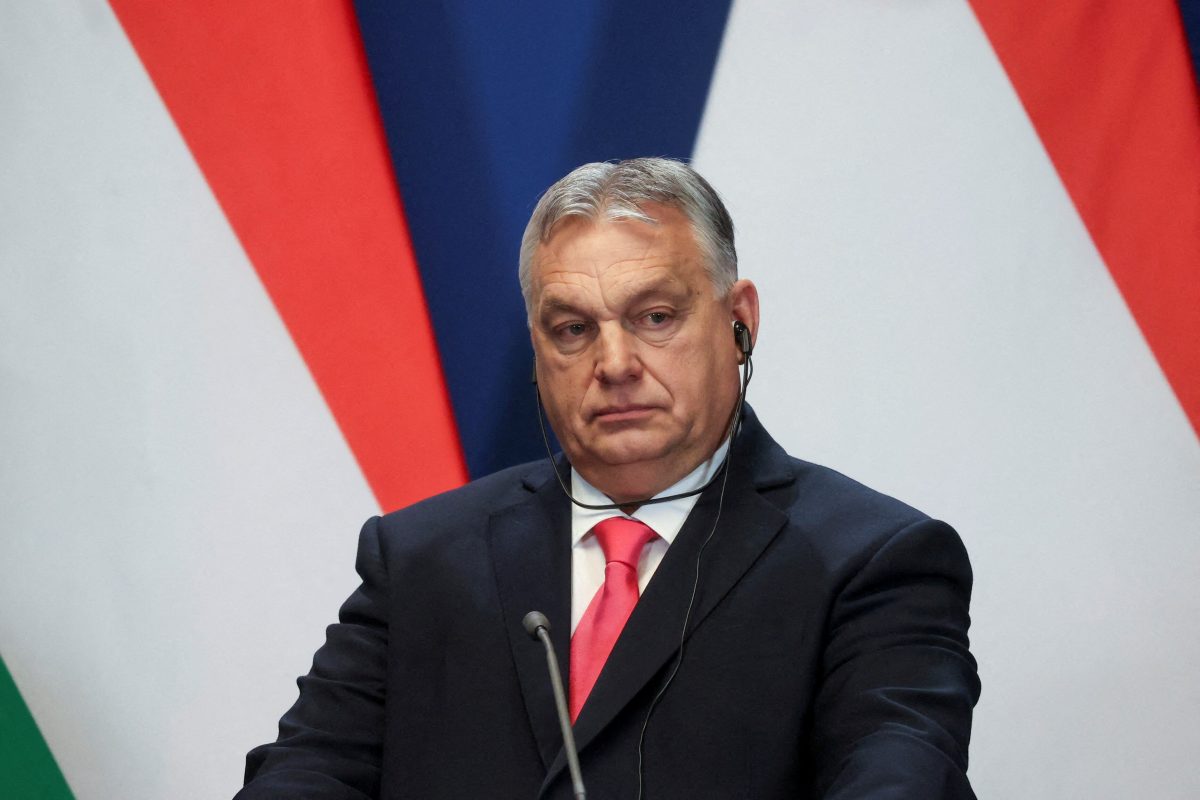BRUSSELS, (Reuters) – European Union leaders unanimously agreed today to extend 50 billion euros ($54 billion) in new aid to Ukraine, the chairman of the summit said, overcoming weeks of resistance from Hungary and winning praise from Kyiv.
Before the summit started, EU leaders piled pressure on Hungary to lift its block, telling Prime Minister Viktor Orban to pick sides in what several saw as an existential challenge posed by Russia’s war in Ukraine, the biggest conflict in Europe since World War Two.
“We have a deal. Unity,” said European Council President Charles Michel in a post on X. “All 27 leaders agreed on an additional 50-billion-euro support package for Ukraine within the EU budget.”
Ukrainian President Volodymyr Zelenskiy welcomed the agreement, saying the aid would strengthen long-term economic and financial stability of his country as the war approaches its third year.
Ukraine’s dollar bonds gained on the news. Kyiv, which relies heavily on Western aid as it fights Moscow, said it expected to receive the first tranche of 4.5 billion euros from the EU in March.
The agreement comes after weeks of wrangling with Orban, who vetoed the aid package last December. There was no comment from Hungary on the deal.
Diplomats told Reuters that, in exchange for the green light from Hungary for the Ukraine aid, the bloc did not commit to releasing any of the billions of euros of EU funds intended for Hungary but frozen by Brussels over widespread concerns about human rights and the rule of law in the country.
They said the aid deal included a yearly discussion of the package and the option to review it in two years “if needed”, but no clear veto right for Budapest.
With an agreement on budget support done, the leaders were next discussing military aid for Kyiv.
The bloc is seen falling short of its target of sending artillery shells to Ukraine, while a standoff between Germany – the EU’s paymaster – and other member states casts uncertainty over the future of a military aid fund that has bankrolled billions of euros in arms for Ukraine.
‘IN OR OUT’
Before the summit began, leaders of Germany, Poland, Belgium and Finland were among others to say on Thursday it was crucial the 27-nation bloc agreed as one to offer aid to Kyiv from their joint budget through 2027.
Orban, who has cultivated close ties with Moscow, has stepped up criticism of the EU’s strategy to prop up Ukraine with financial and military aid.
On Thursday, he posted pictures of himself on social media walking around tractors ahead of a farmers’ protest in Brussels.
He and an aide to Michel posted pictures of groups of leaders seemingly discussing a draft agreement in separate huddles before they all met behind closed doors as 27.
German Chancellor Olaf Scholz had made clear what the expectation of the other 26 EU countries was on Thursday, saying the EU was “a community in which all stand in solidarity”.
Polish Prime Minister Donald Tusk said time for Orban’s “games” was over: “He has to consider if he is in, or out.”
The EU’s decision comes at a time of uncertainty over the future of U.S. aid to Ukraine. Some EU officials said that, without fresh budget support, Kyiv would run out of cash in March.
Orban has had many bitter run-ins with the EU, haggling over billions of euros earmarked for Budapest in the shared EU budget but frozen over concerns about democratic backsliding.
He has also criticised Western sanctions against Russia since Moscow went to war in Ukraine, becoming more and more at odds with his EU peers.
A German diplomat said Orban felt he was putting himself in a position that was “not comfortable”.
“The Hungarian economy is under pressure, that might have helped as well,” said the diplomat, who spoke under condition of anonymity. “Orban knows that he needs the EU.”










